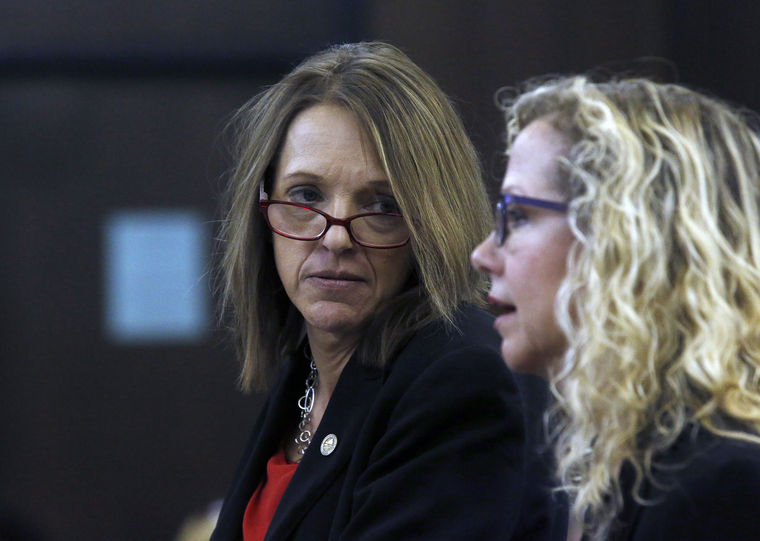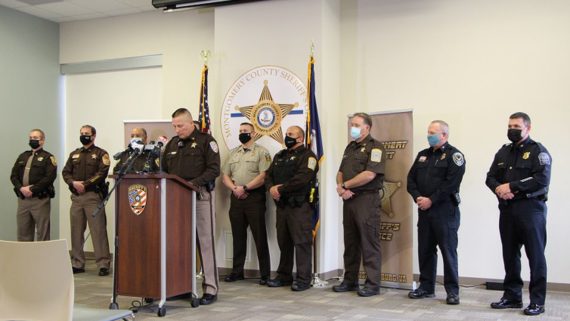
Photo by Bob Brown, Richmond Times Dispatch. Neither June Jennings or Priscilla Smith mentioned personal ties to legislators to hospital under investigation in inmate’s death
(2-8-17) House Republicans in Virginia today moved to fire the state’s sitting Inspector General for issuing a vanilla investigative report about the death of Jamycheal Mitchell that avoided answering tough questions. Mitchell was the 24 year-old African American with schizophrenia who was found dead in a Hampton Roads Regional jail cell while waiting 101 days for a bed in a state hospital. An autopsy showed he had died because of a heart attack caused by starvation. Mitchell had been arrested for allegedly stealing $5.05 worth of snacks from a 7-11 store.
Along with other mental health advocates, I sharply criticized State Inspector General June W. Jennings for issuing a report that failed to explain how a prisoner could starve to death while under near constant surveillance by correctional officers and being checked daily by a nurse hired to provide health care at the jail. Instead of questioning jail officials thoroughly and digging out details about what transpired, Jennings explained that she’d decided to not investigate who might have been responsible, nor “every element of prior investigations.” Instead, her report focused on “system errors”rather than “human ones.” The result was a largely useless document that surely pleased jail officials (who already had investigated themselves and found no wrongdoing) and appeared to have been written to help protect the state from being found liable in a civil lawsuit.
After Jennings issued her report, a whistleblower in her office and two other contract employees alleged in a complaint to the state Attorney General, that IG investigators hadn’t even bothered to go to the jail when Mitchell first died, but instead did a “desk review,” which meant they called jail officials and asked them to fax them copies of their official reports. The whistleblowers also charged that Jennings and her staff intentionally mislead me when I filed a Freedom of Information request.
Hours after that complaint was filed, a spokesman for Virginia Governor Terry McAuliffe announced that the complaint was being rejected because the governor had full confidence in Jennings. The whistleblowers noted that the governor’s office took this action without bothering to interview any of them. In the midst of that dust-up, a newspaper reported that Jennings and her top assistant, Patricia Smith, had personal ties to the state hospital that misplaced Mitchell’s paperwork, causing him to remain in jail rather than be transferred. Those connections raised questions about whether either Jennings or Smith could be objective, but the governor stuck with her.
And after today’s vote, Governor Terry McAuliffe, a Democrat, doubled or I should write, tripled down. In an angry statement, he defended Jennings while accusing Republicans of game playing. Click to continue…
 (7-21-16) Did a Virginia official, whose job is to protect the public from dishonest government officials, lie to me?
(7-21-16) Did a Virginia official, whose job is to protect the public from dishonest government officials, lie to me?






